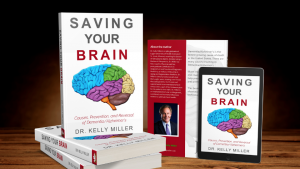What is Alzheimer’s Disease?
We are hearing more and more about Alzheimer’s today because not only is it affecting the elderly but also those in their 30s and 40s. The rise of Alzheimer’s Disease is in part due to our lifestyle choices, environment, increase stress and anxiety, insomnia, and other factors. Here’s are some current facts:
- Alzheimer’s disease is the most common type of dementia.
- It is a progressive disease beginning with mild memory loss and possibly leading to loss of the ability to carry on a conversation and respond to the environment.
- Alzheimer’s disease involves parts of the brain that control thought, memory, and language.
- It can seriously affect a person’s ability to carry out daily activities.
Who has Alzheimer’s Disease?
- In 2020, as many as 5.8 million Americans were living with Alzheimer’s disease.1
- The number of people living with the disease doubles every 5 years beyond age 65.
- This number is projected to nearly triple to 14 million people by 2060.1
- Symptoms of the disease can first appear after age 60, and the risk increases with age.
A study presented at the 2019 Alzheimer’s Association International Conference reveals that you can lower your risk of developing the disease by a whopping 60% by adopting the 4 or 5 of the following everyday lifestyle habits.
So what are the 5 Lifestyle Changes to Fight Alzheimer’s Disease?
1. Eat right: Skip fried foods, red meat, sweets, and baked goods and focus on consuming a diet high in vegetables, seafood, poultry, berries, nuts, beans, whole grains, and olive oil. We need to change the way we think about eating. Food can be healing and we need to make smarter choices in what we put into our bodies. For centuries, certain foods and herbs are used in many countries for medicinal purposes.
Have you ever noticed how some foods containing gluten make you feel tired and sluggish after eating them? For many people, gluten causes inflammation that can affect concentration levels and put you in a major brain fog after eating. Aim for high-quality non-gluten whole grains instead. Oatmeal is a good source of soluble fiber to promote gut health, which is also referred to as the “second brain.”
Broccoli is high in several key nutrients aimed towards keeping your brain sharp. Vitamin K, choline, and vitamin C are all needed for keeping your memory and concentration levels going strong. One cup of broccoli provides you with one hundred and fifty percent of your recommended daily value of vitamin C, which converts to an antioxidant in the body to fight disease and inflammation. Enjoy raw broccoli with hummus as a snack or steamed broccoli at dinner with wild salmon and brown rice.
Wild-caught salmon and other oily fish are high in omega 3 fatty acids, which are essential for improving brain function. Omega 3 fatty acids are full of anti-inflammatory properties that reduce the chronic inflammation responsible for brain fog and impaired memory. They have also been linked to better behavior and improved concentration levels in children with attention deficit disorders or hyperactivity. Aim for two to three servings of four ounces per week of wild-caught salmon. Stay away from farm-raised, which often contain added chemicals and food colorings.
2. Get moving: Aim for 150 minutes a week of moderate to vigorous exercises, such as walking, swimming, or bike riding (always wear a helmet to protect your brain!). Gardening and yard work count too!
Exercising several times a week for 30 to 60 minutes may:
- Keep thinking, reasoning and learning skills sharp for healthy individuals
- Improve memory, reasoning, judgment and thinking skills (cognitive function) for people with mild Alzheimer’s disease or mild cognitive impairment
- Delay the start of Alzheimer’s for people at risk of developing the disease or slow the progress of the disease
- Increase the size of the part of the brain that’s associated with memory formation (hippocampus)
Physical activity seems to help your brain not only by keeping the blood flowing but also by increasing chemicals that protect the brain. Physical activity also tends to counter some of the natural reduction in brain connections that occurs with aging.
3. Avoid excessive alcohol: Drink no more than 1 glass of wine, beer, or other alcoholic beverages per day.
One study found that while moderate consumption was actually linked to a slight decrease in Alzheimer’s disease, regular over-consumption of alcohol increases the risk of developing Alzheimer’s disease by 300%.
4. Don’t smoke: Avoid smoking cigarettes. Smoking has long been known to cause a variety of serious medical problems, especially for the heart and brain. Recent evidence has emerged that smoking does more damage to the brain than previously thought and increases your risk of Alzheimer’s disease.
5. Engage in cognitive stimulation: Play chess, solve crossword puzzles, read books, or do other brain-boosting activities. Mind games such as crossword puzzles and sudoku stimulate your memory and thinking skills. Experts often suggest them as a way to ward off memory-robbing diseases like Alzheimer’s. And studies show that the more often you engage in these activities, the better your brain health will be.


